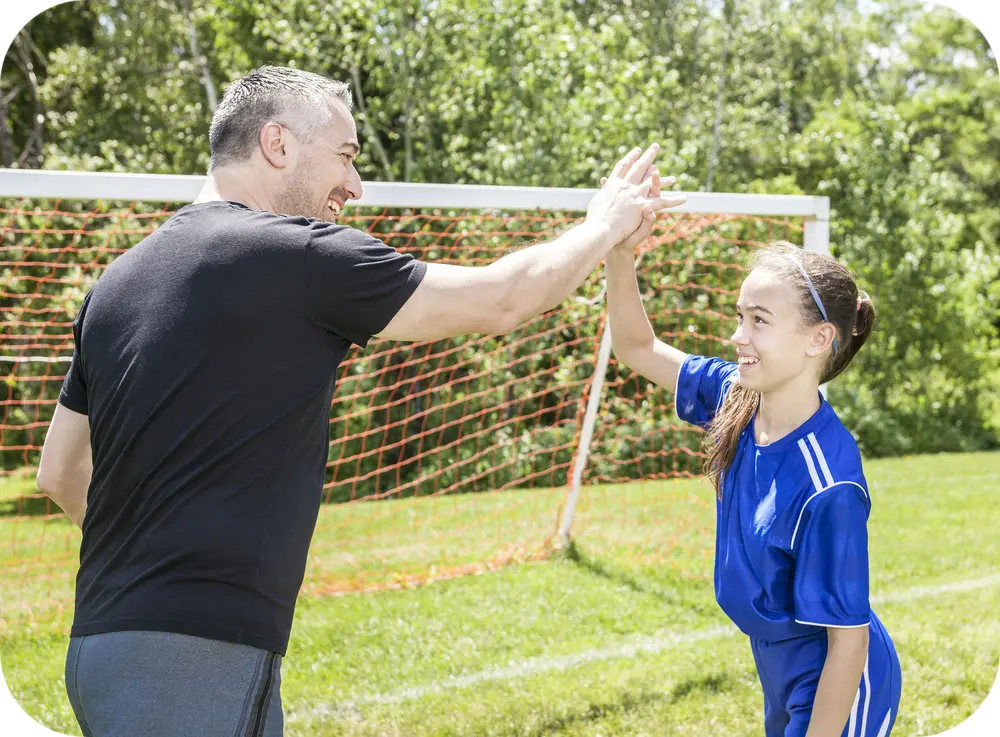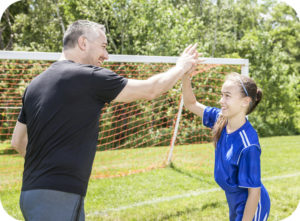
May 24, 2019 • 2 min read
How to Communicate with Your Child’s Coach
Posted in:
 Good communication is key to building strong relationships–especially when it comes to youth sports. Sometimes, though, too much communication can be, well, too much, and especially when it’s unhealthy. Parents can sometimes be guilty of doing this, whether it’s connecting with a coach about playing time, positional issues, and even coaching strategy.
Good communication is key to building strong relationships–especially when it comes to youth sports. Sometimes, though, too much communication can be, well, too much, and especially when it’s unhealthy. Parents can sometimes be guilty of doing this, whether it’s connecting with a coach about playing time, positional issues, and even coaching strategy.
Good parent-coach communication needs to start with some basic guidelines:
- Let your child do the talking when it comes to playing time, position or game-time issues.
- If that doesn’t resolve an issue, go with your child to talk with the coach, just as a support. And again, let your child do the talking.
- If nothing is resolved and you feel you must talk with the coach alone, here are some tips:
- Ask to talk away from an audience, and preferably not right after a game.
- Thank them for their sacrifice of time. Let them know you appreciate all they do.
- Come with an inquiring attitude; not an accusatory one. Coach, what does my child need to do to improve? And not: Why are you not allowing my child to play?
- Ask if there is any way you can help the team. This is done with no strings attached and lets them know you want to support them.
- If it is a safety or moral issue and the coach is not responsive or helpful, approach their supervisor.
- Be willing to agree to disagree agreeably. You will not always agree with the coach’s decision, but when you’ve tried all avenues and nothing works, you are left with the choice to either stick it out or leave the team. That’s a decision only you and your child can make.
- Last but not least: Seek to understand. Remember that coaches are humans and may be dealing with their own challenges. As Stephen Covey explains: Seek to understand, THEN to be understood. It is only after you’ve sought to understand others that they will be willing to understand you.
Janis Meredith is a family coach who wants to help all parents raise champions. You can find out more at rcfamilies.com.
